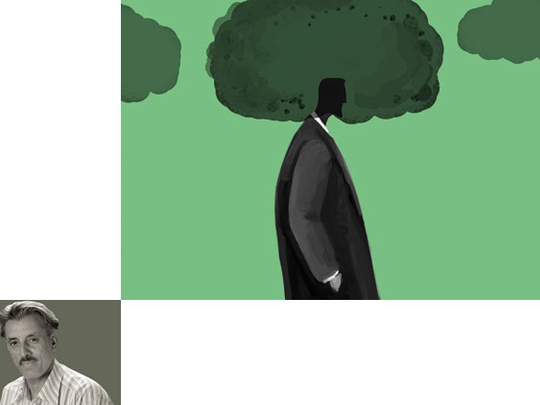
A recently-held seminar titled ‘Islamists and the Government,’ drew an audience of 150 personalities from Jordan, Egypt, Tunisia, Kuwait, Libya, Yemen, Morocco, Sudan, Bahrain and Iraq. The event hosted by the Middle East Studies Centre raised issues such as Islamists in the modern Arab state post-revolution, challenges facing the countries after the revolution and ways in which Islamist states can shape future policies. The forum presented many democratic models — a few of these based on previous systems — and used evidence from 11 studies to support their arguments in response to the idea of Islamic governments.
As circumstances have changed drastically in the Arab region over the past year, Islamist governments have had the opportunity to establish themselves in some countries, such as the Al Nahda party in Tunisia and the Freedom and Justice party in Egypt. A further milestone is the implementation of Islamic law in Libya and the emergence of Islamist parties in both Syria and Yemen.
Islamists all around the world are now faced with complex problems — the first being the meaning of the civil state. The most pressing issue with regard to this is economics. Under past regimes, both belonging to the left and right, there was a lack of economic perspective — not because of the lack of books written on Islamic economics, but because of the emergence of a general theory linking the morality of economic concepts, beliefs and applications.
Furthermore, Islamist groups also differentiate on views about which economic school of thought to follow. How to divide private and public sectors in the distribution of resources? What poor distribution of income at the national level of economic injustice does at the global level? And how to combine justice and economic efficiency with the optimal distribution of wealth?
Most Islamic movements are rather pragmatic in nature. They use a vocabulary that is understood by all and inherited hundreds of years ago.
In Tunisia, the situation appears somewhat different compared to that in Egypt. Despite the unprecedented attack on Salafists, public freedom and the manifestation of modernity, the Renaissance movement led by Rashid Gannouchi, is modelled to a large extent on Turkish Islamic models.
Perhaps the major change in the political position in favour of Islamists reflects the extent to which eager Arab societies hope to come out of the Islamic renaissance project after a long absence — not only on the theoretical level, but also on a practical level.
The real problem is not the arrival of Islamists at the top, but how the Islamist project can win the confidence of the people. There are two successful examples in the region: First, Iran, in its conflict with the West and in carrying the banner of the Palestinian cause, has been a strong incentive for Arab societies to revive their own religious and political bodies. Second, Turkey has also successfully implemented democratic Islam — another exemplary model for Arabs to look up to as an illustration of a great state observing moderate political Islam in the Middle East.
The Islamists who are advocates of the project promise to rid societies of corruption and revolution in order to provide a proper climate for freedom, dialogue and acceptance of others.
The Islamic current in the Arab arena is split because of a religious-political interference.
The Islamists have to destroy the pillars upon which the physical state of tyranny is based. These pillars have extensions too — internal and external systems that are intertwined with capitalist West. They need to dismantle and re-install these using social forces and instead develop and launch a new project to initiate progress in line with international humanitarian standards.
If the political Islamic groups cannot develop clear management and establish a modest political environment, which is not accepted by the West, then how do these groups think they will succeed in ruling?
Islamists’ acceptance of political participation began using the balance of political, social and religious ideas in the community and on the Arab street. Islamists began reaping votes in the elections in Tunisia, Egypt, Morocco and Libya. Arab Islamists try to replicate the experience of Turkey when it comes to governance as seen in the case of the Justice and Development Party in Egypt. Currently, Arab Islamists are still at the stage of Necmettin Erbakan, and not Recep Tayyip Erdogan, with regard to the Turkish model. However, as usual, they forget important facts, including the fact that Erbakan came to power in Turkey and tried to rule, but failed, and then went to Erdogan instead and changed the mechanisms of the existing party. Thus, he went on to establish a new party that was more realistic and based on economic foundations.
The Islamists have no clear political programme with regard to economic structures or new prospects for their countries. They cannot forever hide behind slogans directed at a limited cultural identity. Once people feel that they are not helping improve their economic and social conditions and have instead become victims of a government ideology, they will continue the fight for their rights.
It is important that political Islamic groups should be honest as they hope to seek power and recognise that societies, previously led by communists, leftists, secularists, nationalists and businessmen, have failed.
Then what is the scope for a society led by Islamists? The question is, will they be able to rule without any practice? Furthermore, can the Islamic political system, that presents itself to the world as a model, embody the vision of the Islamic movement and its programme?
Democracy has its mechanism for the application of contemporary Shura and accepts partnership with other currents — nationalist, leftist and liberal — in government.
The fear among the Arab citizens of the arrival of the Islamists in power is that they will inherit the international agreements and unfair economic conditions that were prevalent before the revolution.
Dr Shakir Noori is a journalist and author based in Dubai.








